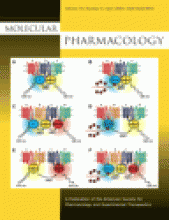Abstract
Brain dopaminergic systems are critical in motor control as evidenced by findings that their disruption results in movement disorders such as Parkinson's disease. Nicotinic acetylcholine receptor (nAChR) activation plays an important role in regulating striatal dopaminergic function. Rodent studies show that short-term nicotine exposure influences stimulated striatal dopamine release with responsiveness dependent on neuronal activity. However, studies have not yet been done in nonhuman primates, nor has work been done to evaluate the effect of long-term nicotine exposure, which is relevant for therapies for chronic neurological disorders. Here, we used voltammetry to assess the role of nAChRs on evoked dopamine release from monkey putamen slices. In both ventral and dorsal putamen, α3/α6β2* nAChRs regulated ≥80% of non-burst- (single pulse) nAChR-modulated dopamine release, and α4β2* nAChRs regulated the remainder. Similar results were observed with burst-firing in ventral but not dorsal putamen, indicating that nAChR-modulated effects on release depend on the subregion and firing frequency. Next, we investigated the consequence of long-term nicotine exposure via the drinking water on nAChR-modulated responsiveness. Nicotine treatment altered both non-burst- and burst-stimulated dopamine release in ventral but not dorsal putamen. Altogether, these data support a predominant role for α3/α6β2* nAChRs in the regulation of evoked dopamine release in nonhuman primate putamen. They also show that long-term nicotine treatment selectively modifies nAChR-modulated release in distinct striatal subregions. These findings have implications for the development of treatments for addiction and neurological disorders with nAChR dysfunction.
Footnotes
-
This work was supported by National Institutes of Health National Institute of Neurological Disorders and Stroke [Grants NS42091, NS47162]; National Institutes of Health National Institute on Drug Abuse [Grant DA12242]; National Institutes of Health National Institute of Mental Health [Grant MH53631]; National Institutes of Health National Institute of General Medical Sciences[Grant GM48677]; and the California Tobacco Related Disease Research program [Grants 17RT-0119, 15FT-0073].
-
ABBREVIATIONS: nAChRs, nicotinic acetylcholine receptors; α-CtxMII, α-conotoxinMII; RTI-121, 3β-(4-iodophenyl)tropane-2β-carboxylic acid; *, the possible presence of other nicotinic subunits in the receptor complex; aCSF, artificial cerebrospinal fluid; FSCV, fast-scan cyclic voltammetry.
- Received December 1, 2008.
- Accepted January 14, 2009.
- The American Society for Pharmacology and Experimental Therapeutics
MolPharm articles become freely available 12 months after publication, and remain freely available for 5 years.Non-open access articles that fall outside this five year window are available only to institutional subscribers and current ASPET members, or through the article purchase feature at the bottom of the page.
|






